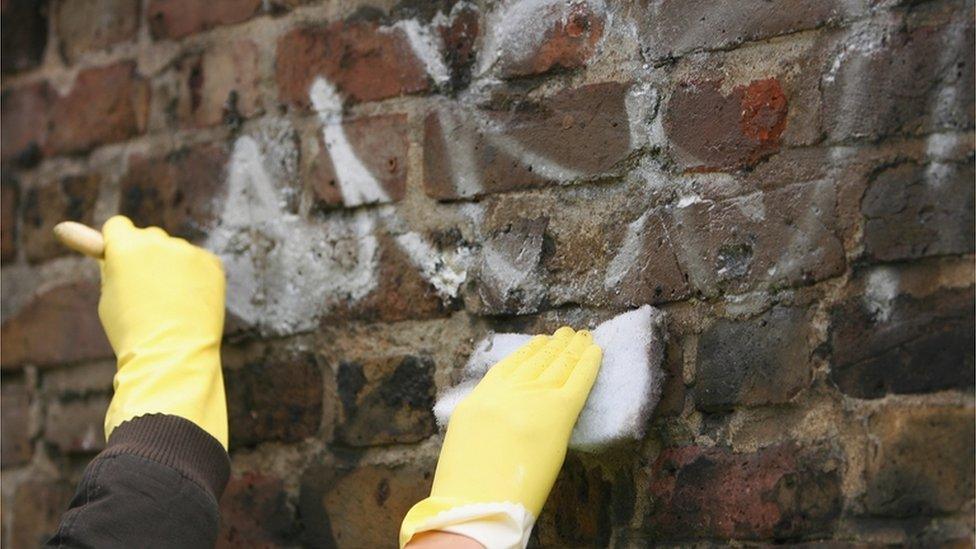Drop in number of offenders given community sentences
- Published

Fewer offenders were given community sentences in the last year
The number of offenders ordered to carry out unpaid work in the community as an alternative to a jail sentence has dropped.
It is the second successive year that the number of Community Payback Orders (CPOs) has fallen.
The figures for the year to the end of last March do not reflect the Scottish government's presumption that courts should not impose custodial sentences of a year or less.
The policy became law last June.
Those released from a short prison sentence are almost twice as likely to be reconvicted as those given a CPO.
In the official Scottish government report, external, it was revealed that Scotland's communities have benefited from about eight million hours of unpaid work carried out by people serving community sentences since 2011.
The figures also show the number of people given supervised bail, rather than being remanded in custody, increased by 26% between 2017-18 and 2018-19.

Scotland's communities have benefited from about eight million hours of unpaid work since 2011
The unpaid work that offenders carried out under the orders included maintaining footpaths and clearing drains, making furniture for foodbanks and schools, landscaping local areas and redecorating community halls.
The Scottish Association of Social Work said its members were working hard to support people, including those who have offended and who are "disproportionately from Scotland's poorest communities".
A spokeswoman said: "Our members are often doing up to 11 hours unpaid extra per week. Social workers work closely with offenders and with sheriffs to divert people from prosecution and increase the number of structured deferred sentences. Members tell us that few, if any, requested reports are uncompleted.
"We believe one factor that may be slowing the culture shift towards the presumption against short sentences is the reduction in funding for support agencies available to social workers and service users. This may influence whether a CPO recommendation is accepted over a custodial sentence."
Justice Secretary Humza Yousaf said that while prison was necessary for offenders who posed a significant public safety risk, short-term custodial sentences were an ineffective means of rehabilitation.
'Responsible contributors'
He said: "Imprisonment, including remand, disrupts families and communities, employment and housing - the very factors that deter offending and keep crime down.
"Unpaid work completed by people serving CPOs benefits local projects and helps them to become active and responsible contributors to their community.
"We recognise that some individuals will require sustained support and we are investing £9.5m a year more in community justice services compared to 2015-16 as part of more than £100m funding for justice social work."
He also acknowledged that many people in the justice system had chaotic backgrounds and struggled with addiction and mental health problems.
He added that community sentences, with supervision and other conditions where necessary, added structure and helped people make the positive changes needed to tackle the causes of their behaviour.
- Published6 February 2018

- Published29 January 2019
